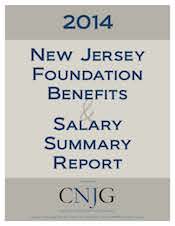Site Search
- resource provided by the Forum Network Knowledgebase.
Search Tip: Search with " " to find exact matches.

Newark is one step closer to its highly anticipated Guaranteed Income Pilot Program following the release of a report by the city, the Jain Family Institute and the Economic Security Project outlining findings and recommendations that would put more cash into residents’ hands.
Mayor Ras Baraka first broached the idea of a universal basic income pilot program at a 2019 State of the City address, saying it would be a welcome experiment in Newark, where more than a third of residents live below the poverty line. Universal basic income is a government benefit that aims to reduce income inequality through direct cash infusion.
More than a year later, the report completed by the city’s special task force is positioning Newark to join a national body of research on guaranteed income. The pilot program would focus specifically on residents struggling with housing insecurity, according to the city.
“What we really want to do is add to the national body of research and put Newark on a national stage,” said Kevin Callaghan, Newark’s philanthropic liaison. “This is Mayor Baraka entering a conversation and saying this is something that we support, and the top recommendation of the report is that there should be a federal guaranteed income policy.”
With the support of JFI and ESP, two internationally recognized research groups, Newark will begin to cast a line to national foundations and donors to fund the pilot. The report estimates anywhere between $4.5 million to $12 million based on three studies, but Callghan put the sweet spot around $5 million for meaningful results.
Estimates say that a Newark family would need $63,000 a year to meet its basic needs, according to United Way of Greater Newark.
In New Jersey, an estimated 762,530 people are facing hunger, according to Feeding America. As the pandemic continues, hunger relief organizations in New Jersey and across the country are facing ongoing challenges such as increased demand for their services and rising food prices.
To that end, Bank of America announced a $700,000 investment to Community FoodBank of New Jersey, Fulfill and Trenton Area Soup Kitchen to address food insecurity in the region. The investment is expected to provide approximately 1.75 million meals.
Earlier this year, Bank of America announced it would make a $100 donation to local hunger relief organizations and food banks for each employee in New Jersey who received a COVID-19 booster shot or vaccine and notified the bank before the end of January.
The company made an additional contribution to address the increased need experienced by hunger relief organizations across the country. Since the onset of the pandemic, Bank of America has provided $2.29 million in funding to Community FoodBank of New Jersey, Fulfill and TASK in support of local hunger relief efforts.
“As the pandemic continues to impact our New Jersey communities, food banks and hunger relief organizations are experiencing increased demand and higher costs to meet the needs of individuals and families,” said Alberto Garofalo, president, Bank of America New Jersey. “Our commitment to help strengthen the communities we live in and serve is unwavering, which is why we are investing in the health, safety and well-being of our teammates, while also providing funds to help our longtime nonprofit partners that are tirelessly working to fight food insecurity and ensure each of our neighbors has access to a meal.”
